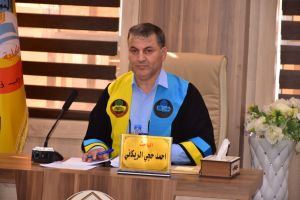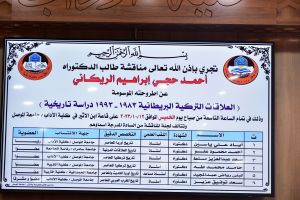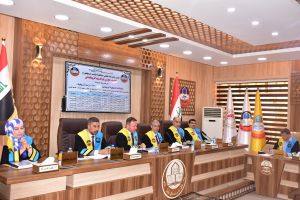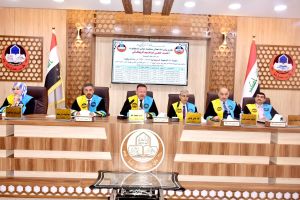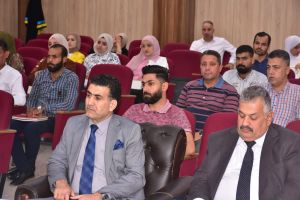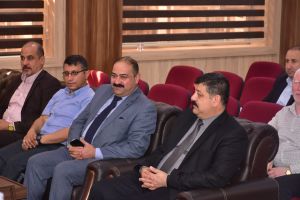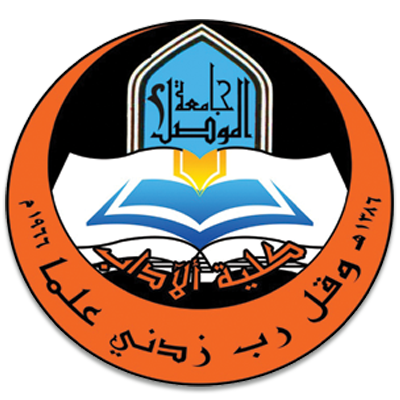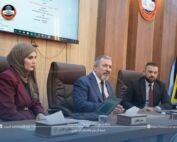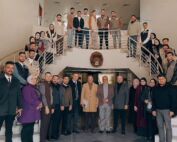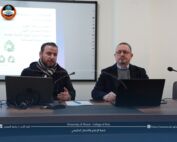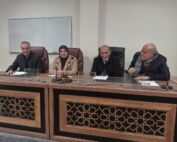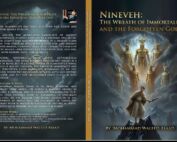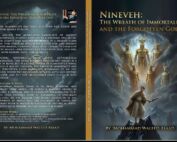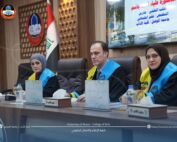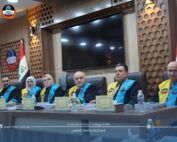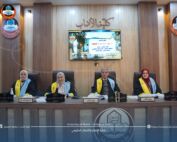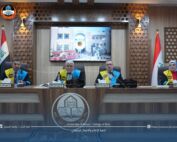12 October، 2023
A PhD dissertation at the Department of History on: (Turkish-British relations)
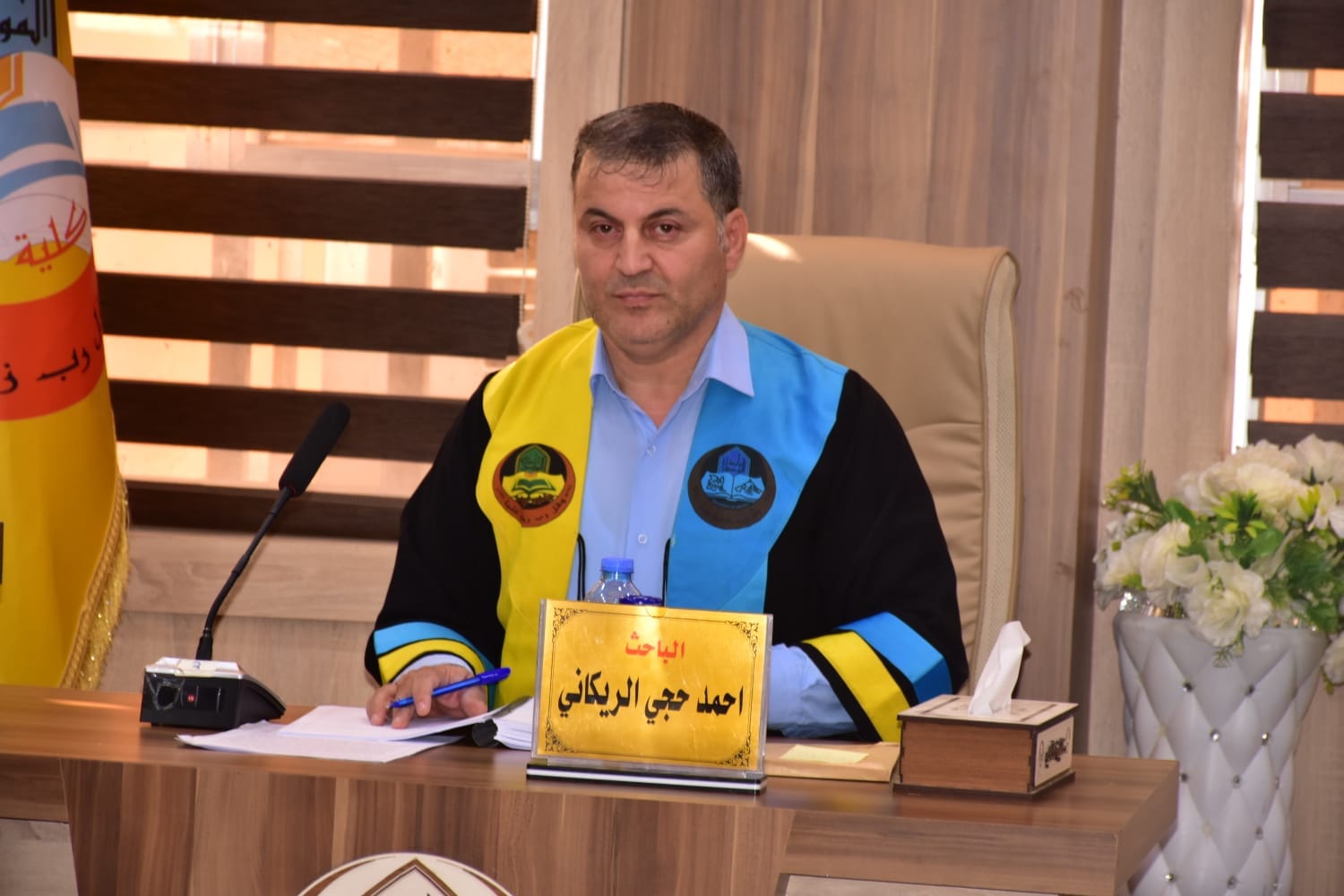
On Thursday, 12th October, 2023, the College of Arts discussed a PhD dissertation on: (Turkish-British relations 1983 – 1993: a historical study). The discussion was attended by the Dean of the College, Assistant Professor Dr. Muhammad Ali Muhammad Afin, and a number of teaching staff and postgraduate students.
The dissertation, submitted by Ahmed Hajji Ibrahim, from the Department of History came to explain that after World War II, Britain became a third power after the United States of America and the Soviet Union (in the new international order), which characterized the foreign policy that Britain implemented, at that time, by activism and aggression in order to maintain its areas of influence and popularity. The decade of the eighties of the twentieth century was characterized by the arrival of two important figures to the presidency in Britain and Turkey. Margaret Thatcher, who was called the Iron Lady, served as Prime Minister in Britain, while in Turkey the position was held by the famous economist Turgut Ozal, which influenced the course of Turkish-British relations during that era. What role did the two characters play in these relationships? Did they take a positive or negative path? This question constituted the main problem in the study.
The study was divided into an introduction and four chapters: The first chapter, which was included under the title (Turkish-British political relations 1923-1980), examined the period that begins with the establishment of the modern Turkish Republic and ends with the 1980 coup in Turkey.
While the second chapter was entitled: (The development of Turkish-British political relations 1984-1993), this is the period known as the Ozal era in Turkey, and it dealt with four topics: the first related to the emergence of the first Motherland Party government and its impact on Turkish-British relations, while the second topic was devoted to Britain’s position concerning the Kurdish issue and its impact on relations between the two countries, while the third topic referred to the development of relations, the British-Turkish relations in the midst of the second Motherland Party government. Finally, the fourth section looked at the nature of Turkish-British relations during the era of the Straight Path Party government.
The third chapter, which was included under the title (Turkish-British Economic Relations 1983-1993), included: four topics that dealt with the economic conditions of Britain and Turkey, as well as trade relations between the two countries, in addition to addressing the tourism aspect and its importance to both countries, while highlighting the nature of tourism and the British aid for Turkey within the framework of the Organization for Economic Cooperation and Development.
The fourth chapter was devoted to studying (regional and international issues and crises and their impact on Turkish-British relations 1983-1993), and the most prominent points of convergence and difference that occurred during that stage.
In this research, which aims to study Turkish-British relations, the basic criteria that affect the course of ideological relations were revealed, including the relationship of the new right and the nature of the international environmental changes that favored Turkey, as well as the pragmatic leadership style that Margaret Thatcher followed to approach international relations, which focused on (military security), the Turkey file, the region in those years, and what factors positively affected the course of relations between the two countries.
The discussion committee was chaired by Professor Dr. Iyad Ali Yassin / College of Arts / University of Mosul, and the membership of: Professor Dr. Ahmed Mahmoud Alo / College of Education / University of Samarra, Professor Dr. Saad Abdul Aziz Al-Muslit / College of Arts / University of Mosul, and Professor Dr. Hamid Mohammed Taha / College of Education for Humanities / University of Mosul and Assistant Professor Dr. Lubna Riyad Abdel Majeed / College of Education for Humanities / Al-Hamdaniya University, as well as the membership and supervision of Professor Dr. Saad Tawfiq Aziz / College of Arts / University of Mosul
